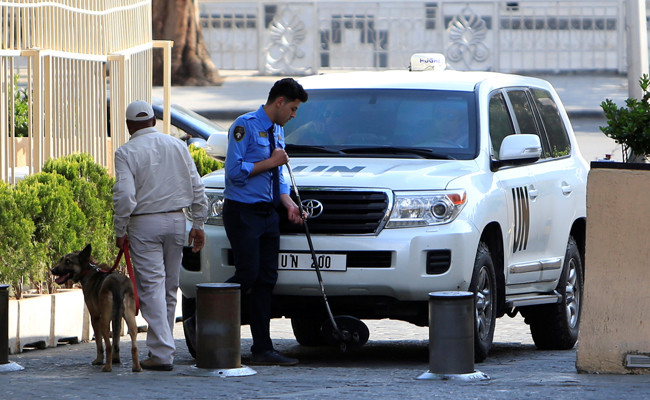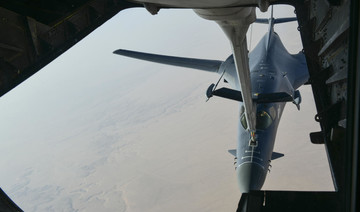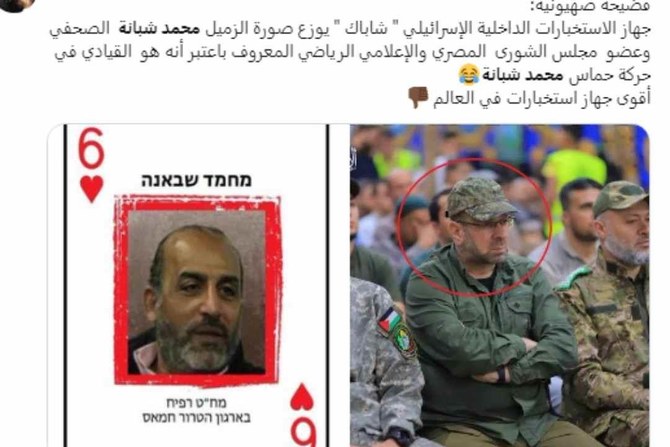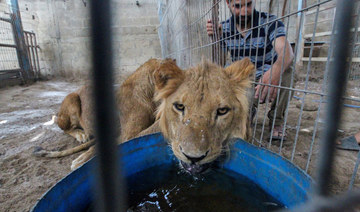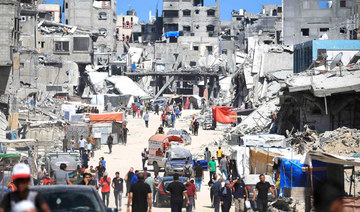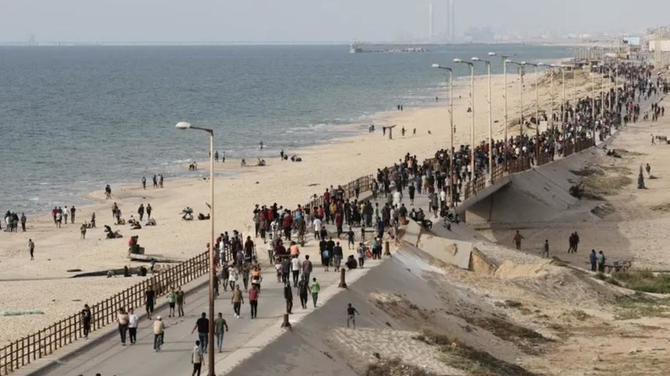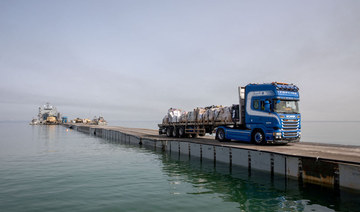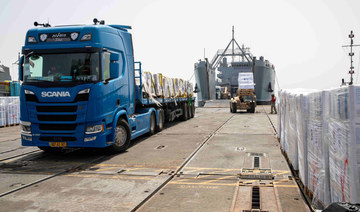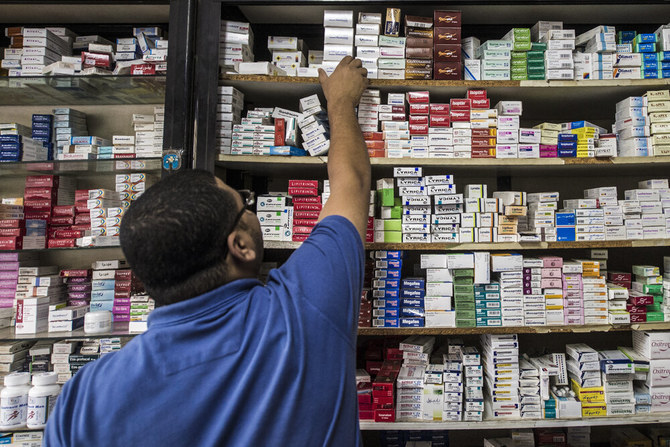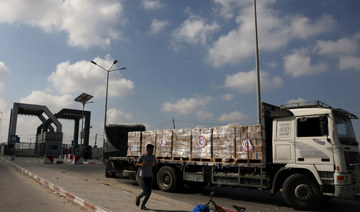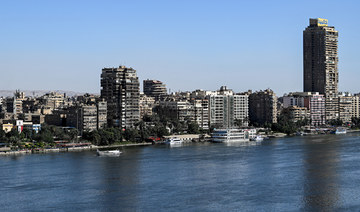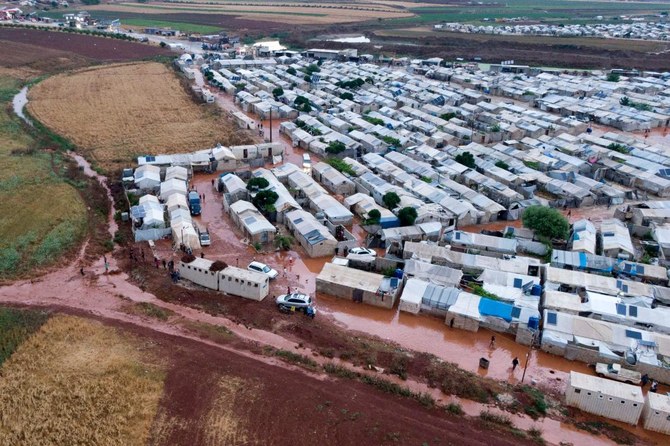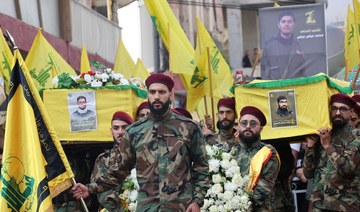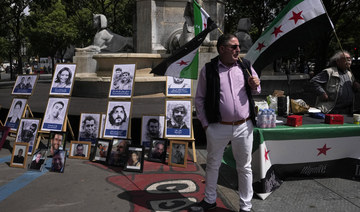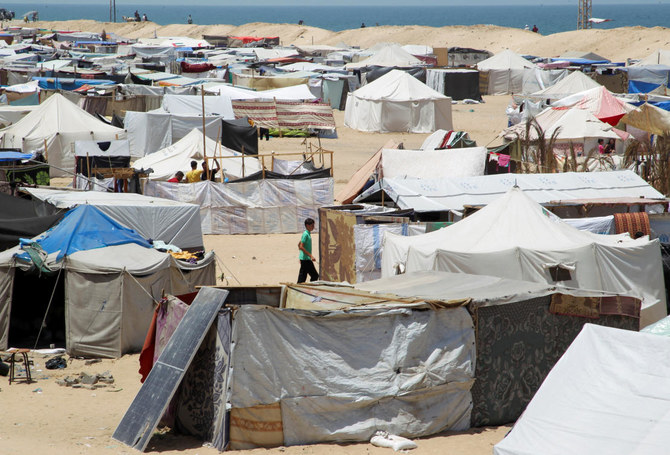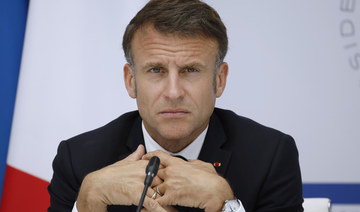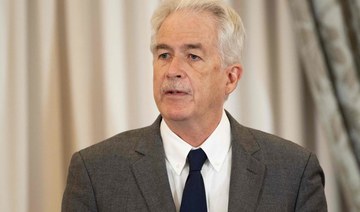DAMASCUS: International inspectors launched their investigation Sunday into an alleged chemical attack near Damascus that prompted an unprecedented wave of Western strikes against Syria’s regime.
Russian President Vladimir Putin, the regime’s top ally, warned that fresh strikes would spark “chaos,” but Washington vowed economic sanctions against Moscow rather than further military action.
US, French and British missiles destroyed sites suspected of hosting chemical weapons development and storage facilities Saturday, but the buildings were mostly empty and the Western trio swiftly reverted to its diplomatic efforts.
US President Donald Trump lauded the “perfectly executed” strike, the biggest international attack on President Bashar Assad’s regime during Syria’s seven-year war, but both Damascus and Syria’s opposition rubbished its impact.
A team of chemical experts from the Organization for the Prohibition of Chemical Weapons, based in The Hague, arrived in Damascus hours after the strikes.
They have been tasked with investigating the site of the alleged April 7 attack in the town of Douma, just east of the capital Damascus, which Western powers said involved chlorine and sarin and killed dozens.
They arrived in Damascus on Saturday but there were no reports they yet had traveled to Douma to begin their field work.
An AFP reporter saw Deputy Foreign Minister Faisal Mokdad enter the Four Seasons hotel where the chemical experts are staying and leave three hours later.
The fact-finding team usually starts its investigation by meeting top officials, but any talks were held behind closed doors and both parties imposed a strict media blackout.
“We will ensure they can work professionally, objectively, impartially and free of any pressure,” Assistant Foreign Minister Ayman Soussan told AFP.
The OPCW itself had declared that the Syrian government’s chemical weapons stockpile had been removed in 2014, only to confirm later that sarin was used in a 2017 attack in the northern town of Khan Sheikhun.
Difficult task
The inspectors will face a difficult task, with all key players having pre-empted their findings, including Western powers, which justified the strikes by claiming they already had proof such weapons were used.
The OPCW team will also have to deal with the risk that evidence may have been removed from the site, which lies in an area that has been controlled by Russian military police and Syrian forces over the past week.
“That possibility always has to be taken into account, and investigators will look for evidence that shows whether the incident site has been tampered with,” Ralf Trapp, a consultant and member of a previous OPCW mission to Syria, told AFP.
The Syrian military late Saturday declared Eastern Ghouta, the former rebel enclave of which Douma is the main town, fully retaken after a blistering two-month assault.
Wresting back the opposition stronghold on the doorstep of Damascus had been a priority for the resurgent regime.
US leader Trump hailed the pre-dawn strikes that lit up the sky around Damascus and exclaimed “Mission Accomplished” on Twitter.
That drew derision from his critics and parallels with president George W. Bush’s notoriously premature Iraq war victory speech on an aircraft carrier almost exactly 15 years ago.
According to American officials, the operation involved three US destroyers, a French frigate and a US submarine located in the Red Sea, the Gulf and the eastern Mediterranean.
The US air force confirmed on Sunday that B-1B bombers deployed at the Al Udeid Air Base in Qatar took part in the strikes.
British Tornado and Typhoon warplanes and French Rafale jets also took part in the strikes.
The Pentagon said no further action was planned but Washington’s envoy to the United Nations, Nikki Haley, warned that the US was “locked and loaded” should another gas attack occur.
Haley later told CBS that sanctions would be announced, likely on Monday, against Russian companies supplying the Syrian regime.
British foreign minister Boris Johnson said the Syrian war would continue despite the “successful” strikes, saying the “overwhelming purpose” of the mission was to respond to repeated chemical attacks.
French President Emmanuel Macron insisted that “we have not declared war on the regime of Bashar Assad.”
Putin told his Iranian counterpart Hassan Rouhani, also an Assad ally, that any new Western strikes in Syria would provoke “chaos in international relations.”
The two leaders “found that this illegal action seriously damaged the prospects of a political settlement in Syria,” a Kremlin statement said.
Assad denounced a “campaign of deceit and lies at the (United Nations) Security Council” after a push by Moscow on Saturday to condemn the strikes fell far short.
Macron and other Western leaders have called for a diplomatic offensive after the strikes, aiming to end a conflict that has killed more than 350,000 people and displaced half of Syria’s population.
A Western draft resolution obtained by AFP at a meeting of the UN Security Council Saturday calls for unimpeded deliveries of humanitarian aid and enforcement of a cease-fire, along with demands that Syria engage in UN-led peace talks.
But Russia has blocked countless resolutions against its Syrian ally and the regime has appeared determined to continue its military reconquest of the country.
“For all the sound and fury of these strikes, their net effect is a slap on the wrist of Bashar Assad,” said Nick Heras, an analyst at the Center for a New American Security.




